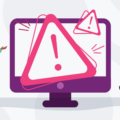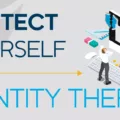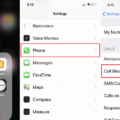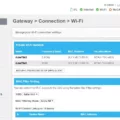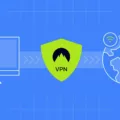Doxxing is a dangerous form of online harassment that involves gathering and posting private information about someone without their consent. It can range from posting someone’s full name, address, phone number, and other personal details to more extreme cases of cyberstalking. While it is not illegal in itself, the consequences of doxxing can be serious.
One common example is when a doxer collects sensitive information about their targets such as their home address, phone number, and social security number. This information can be used for a variety of nefarious purposes such as identity theft or financial fraud. It can also be used to harass the victim by calling them at all hours or sending them unwanted emails and messages.
Another example of doxxing is when a doxer posts embarrassing photos or videos of the victim without their consent. They may also post private messages or conversations that were intended to remain confidential. This type of doxxing can have damaging effects on an individual’s reputation as well as their mental health and well-being.
Finally, doxxing can also take the form of encouraging others to harass or threaten the victim in some way. For instance, a doxer may post the victim’s address with an invitation for people to “stop by” or they may post the victim’s phone number with instructions to call at any hour of the day or night.
Ultimately, doxxing is a dangerous form of online harassment that has serious consequences for its victims. If you suspect you have been targeted by a doxer it is important to document everything you can and contact law enforcement as soon as possible so they can investigate the incident and take appropriate action against the perpetrator.

The Seriousness of Doxxing as a Crime
Yes, doxxing is a serious crime. It is a form of online harassment that can lead to other criminal offenses such as identity theft, stalking, intimidation, and incitement to violence. Doxxing involves searching for and gathering personal information about an individual without their consent and then sharing it publicly. This type of behavior is illegal in many countries and can result in criminal charges including fines and jail time. In addition, the victim may be able to pursue civil damages against the perpetrator.
Signs You Have Been Doxxed
If you suspect that you may have been doxxed, it is important to take proactive steps to determine if your personal information has indeed been released online. Start by searching for your name on popular search engines such as Google and social media platforms like Facebook, Instagram, and Twitter. If you find a collection of personal information about yourself, such as your home address, phone number, or social security number, then it is likely that you have been doxxed. Additionally, look out for any online posts containing personal photos or videos of you without your permission. If any of these signs are present, then it is likely that someone has doxxed you.
It is also important to be aware of how doxxing can affect you in the long term. Your personal information could be used by malicious actors to commit identity theft, or even more serious crimes such as stalking or harassment. Therefore, if you believe that someone has released your personal information online without your consent, it is important to take immediate action and contact the authorities and relevant tech companies in order to get the situation under control as quickly as possible.
How People Get Doxxed
Doxxing is a term used to describe the process of gathering and publishing information about an individual or organization without their consent. It can be done in a variety of ways, including social engineering, internet searches, database breaches, and physical surveillance.
When doxxing someone, the goal is to uncover personal details such as full name, address, phone numbers, email addresses, family members and associates, financial records, personal photos and videos, employment history, and educational background. This information can be collected from public records such as birth certificates or driver’s licenses. It can also be gathered through social media accounts like Facebook or Twitter by searching for posts that reveal personal details about the target. Additionally, search engines such as Google or Bing can be used to uncover documents related to the target that may not otherwise be accessible.
Once these details are obtained by the doxxer they are usually published online either on a website dedicated to revealing private information about the target or on social media platforms such as Twitter or Reddit. This allows anyone with access to the internet to see this information even if the target had previously taken steps to keep it private.
Can Police Address Doxxing?
Yes, police can take action in cases of doxxing. Depending on the circumstances of the doxxing incident, the police may be able to charge the doxxer with a crime such as stalking, harassing, revenge porn, or cyberbullying. If the doxxer has made a credible threat of harm to you or your family, then it is best to report it to the police as soon as possible. The police may also be able to help by removing any identifying information from public databases or websites where it was posted without your permission. Additionally, if you are concerned for your safety, you can ask for a restraining order against the doxxer.
Is Doxing Illegal in the US?
In the US, it is generally not illegal to dox someone, as long as the information exposed lies within the public domain and was obtained through legal methods. It is important to note, however, that depending on your jurisdiction and the circumstances of the case, doxing can still be considered a criminal offense. This could include anything from stalking and harassment to making threats. The laws governing these activities vary from state to state, so it is important to research your local laws before attempting any form of doxing.
The Frequency of Doxxing
Doxxing is a surprisingly common occurrence for both celebrities and everyday people. According to a study by SafeHome, by 2021, an estimated 43 million Americans have been doxxed at least once in their lives. That’s roughly 13 percent of the population – one out of every eight people.
This form of cyberbullying involves publishing personal information about someone online, such as their home address, phone number, or bank details. Doxxers often use this information to intimidate and harass their victims, but it can also be used for more nefarious ends such as identity theft or fraud.
The problem is particularly prominent among young people, with one survey finding that over 60 percent of students aged 11 to 18 had experienced doxxing in some form. The consequences of doxxing can be serious – victims often report feeling anxious or scared after being targeted – so it’s important to take proactive steps to protect your online privacy and security.
The Risks of Doxxing
Yes, you should be concerned about doxxing. Doxxing is a malicious practice where someone publicly shares personal information about you without your consent, such as your name, address, phone number, photos, or other private information. This information can be used to facilitate harassment, intimidation, identity theft, and other forms of online abuse. If you think you might be at risk of doxxing it is important to take steps to protect yourself by limiting what personal data you share online and taking security precautions.
Protecting Yourself From Being Doxxed
Yes, it is possible to protect yourself from being doxxed. The best way to do this is to take the necessary precautions when using the internet. First, make sure that your social media profiles are private, and that any usernames or handles are kept anonymous. Additionally, remove any addresses, places of work, or specific locations from your accounts. You should also be careful about what information you share online – if possible, avoid sharing personal data such as your home address and phone number. Finally, consider using a virtual private network (VPN) for extra security when accessing the internet on public networks or Wi-Fi hotspots. By taking these steps, you can help protect yourself from potential doxxing attempts.
Consequences of DOXing Someone
If you dox someone, you could be charged with cyber harassment (doxing) under California Penal Code §653.2. This is considered a misdemeanor charge and carries a potential sentence of up to one year in jail and fines of up to $1,000. Additionally, the victim may be able to sue you for damages related to their emotional distress or any financial losses they experienced as a result of your doxing them. You may also have to pay for the costs associated with any legal proceedings brought against you by the victim.
Conclusion
In conclusion, doxxing is a form of cyber harassment where someone’s personal information is released online without their permission. It can include anything from addresses and phone numbers to family members’ names and social media profiles. Doxxing can be done maliciously, leading to victims feeling unsafe or threatened. It is important to be aware of the risks associated with doxxing, as it can have serious legal and emotional consequences. In addition, steps should be taken to protect your personal information online in order to prevent yourself from being targeted by a doxxer.

